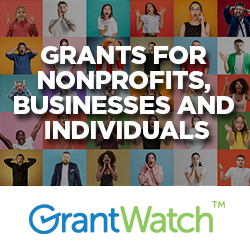Grants to USA Nonprofits for Research to Address Inequality for Children and Youth
Geographic Focus
USA: Alabama; Alaska; Arizona; Arkansas; California; Colorado; Connecticut; Delaware; Florida; Georgia; Hawaii; Idaho; Illinois; Indiana; Iowa; Kansas; Kentucky; Louisiana; Maine; Maryland; Massachusetts; Michigan; Minnesota; Mississippi; Missouri; Montana; Nebraska; Nevada; New Hampshire; New Jersey; New Mexico; New York City; New York; North Carolina; North Dakota; Ohio; Oklahoma; Oregon; Pennsylvania; Rhode Island; South Carolina; South Dakota; Tennessee; Texas; Utah; Vermont; Virginia; Washington, DC; Washington; West Virginia; Wisconsin; Wyoming
Important Dates
Deadline: 08/06/25 3:00 PM EST
Short Grant Description
Grants to USA nonprofit institutions for research to improve the lives of American children and youth up to age 25. Funding is intended to support the effective exploration of policies and activities that address inequality for young people. Priority is given to studie...
View Full Grant Details
Subscribe to become a MemberPlus+
Subscribe to GrantWatch
| Features | MemberPlus+ | |
| 1. | Thousands of Grants and 990 Reports |  |
| 2. | Complete Grant Descriptions and Ability to Save as a PDF |  |
| 3. | Grant Eligibility with Direct Links to RFPs to Apply |  |
| 4. | Live Customer Support |  |
| 5. | Email Updates of the Latest Grants |  |
| 6. | Real Time Personalized Grant Alerts |  |
| 7. | Affordable Pricing Options |  |
| 8. | Multi-User and Library Licenses |  |
| 9. | Keep Track of Your Grant View History |  |
| 10. | Hide Ineligible Grants |  |
| 11. | Personalized Grant Calendar with Submission Tracker |  |
| 12. | Boolean Keyword Search |  |
| 13. | SMART Advanced Grant Search |  |
| 14. | Save Your SMART Grant Search Filters |  |
| 15. | Foundation Search and IRS 990 Report Finder |  |
| 16. | Grant Recipient Profiles with Reverse Search |  |
| 17. | Save Foundations and Recipient Search Filters |  |
| 18. | GrantNews Newsletter |  |
| 19. | Grant Resources and Tutorial Videos |  |
| 20. | Priority Purchase of The Queen of Grants by Libby Hikind |  |
| PRICING & PLANS | ||


